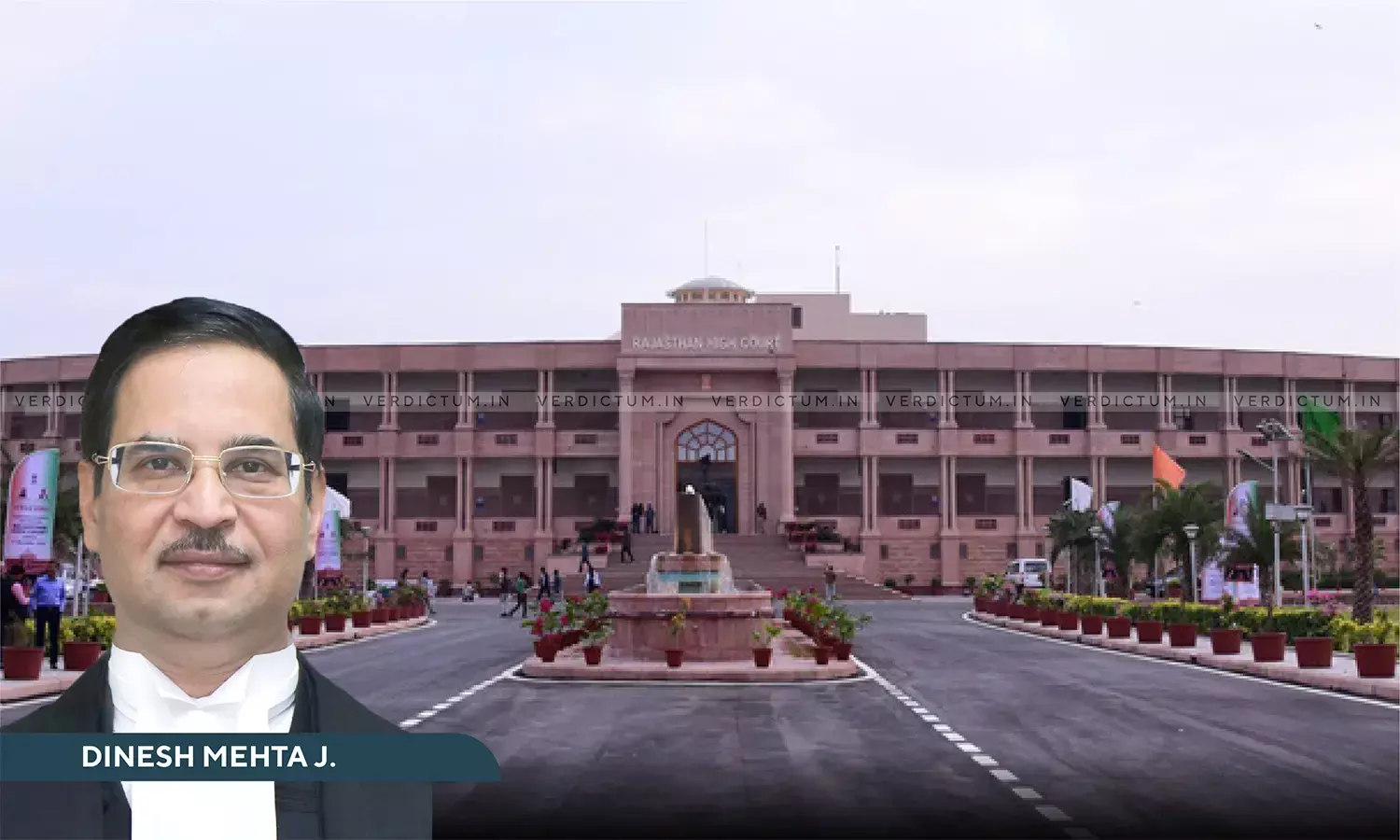Teachers Shape the Nation; Unruly Behavior Cannot Be Shielded Under Freedom of Expression: Rajasthan HC
The Rajasthan High Court has dismissed a writ petition challenging the suspension of a government teacher for alleged misconduct, ruling that unruly behavior in the name of freedom of expression cannot be tolerated.
The Single-Bench of Justice Dinesh Mehta termed the actions of the petitioner, who was accused of hurling slogans, using unparliamentary language against the Education Minister, burning his effigies, and affixing hoardings belittling him as one of the most glaring instances of insubordination.
"Petitioner’s engagement in political activities, as has been highlighted in the reply, and his behaviour definitely fall within the scope of misconduct and calls for disciplinary inquiry against him. The petitioner cannot use freedom guaranteed by the Constitution to garner his fiefdom. To keep the society in order, self-restraint is necessary while respecting the self-esteem of others," the Court said.
The Court upheld the suspension, emphasizing that such conduct warranted a disciplinary inquiry under the Rajasthan Civil Services (Conduct) Rules, 1971.
The petitioner, a government teacher and President of the Secondary Teachers Association, contended that his suspension was vindictive. He argued that the charges did not arise from his official duties and that the initial suspension order incorrectly cited Rule 13(2), which applies to government servants who have been in custody for over 48 hours. Although a subsequent order corrected the provision to Rule 13(1)(a), the petitioner argued the charges could not constitute misconduct.
The State, however, maintained that the petitioner’s behavior—including raising baseless allegations and using inappropriate language against the Education Minister—fell squarely under the scope of misconduct. It argued that his actions, which included placing hoardings and making public outbursts, disrupted departmental discipline and warranted suspension to enable a fair inquiry.
The Court concurred with the State’s position, observing that the petitioner’s continued presence in office could undermine departmental discipline, influence witnesses, and set a poor example for students. The Court stated:
"Petitioner's unruly behaviour cannot be tolerated in the name of freedom of expression. His remaining on duties will not only create undue pressure upon the Inquiry Officer but also disseminate indiscipline and wrong signals amongst other employees. A teacher is a maker of the country—what type of country and generation would we be nurturing by protecting rather than patronizing such teachers?"
The Court also held that incorrect citation of the rule in the initial suspension order did not render it invalid, as the disciplinary authority’s powers were drawn from Rule 13(1).
Dismissing the petition, the Court underscored the necessity of self-restraint and respect in maintaining societal and institutional order. While dismissing the Writ Petiiton, the Court ordered, "Needless to mention that the observation made by this Court are relevant only qua the adjudication of the impugned order of suspension. The inquiry officer while conducting inquiry against the petitioner pursuant to the charge-sheet already served shall not be bound by the order instant. He shall conduct and conclude the inquiry on the basis of ocular and oral evidence, in accordance with law."
Cause Title: Shamboo Singh v. The State of Rajasthan & Ors. [Neutral Citation NO. 2024:RJ-JD:51277]
Appearance:-
Petitioner: Advocates Divik Mathur, D. S. Sodha
Respondent: Advocates N. K. Mehta, Deepak Chandak (AAAG), Sonal Parihar, B. L. Bhat (AAG)
Click here to read/download the Judgment




